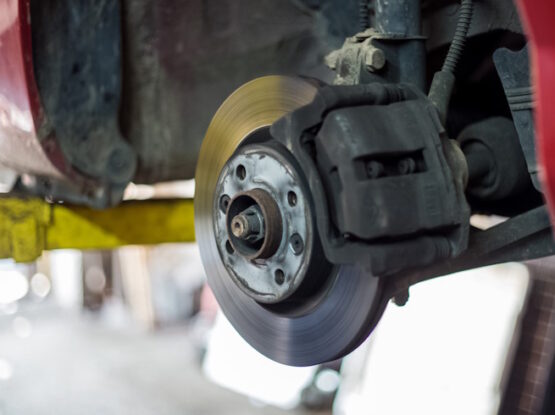Are you frantically searching Google on “why does my car smell like gas?”. Let’s break down some of the potential causes behind why a car smells like gas and see what you can do to take care of the problem before it becomes a bigger issue. Before we do, do any of these situations sound familiar?
- Have you ever climbed into your car and caught a whiff of gas?
- Do you find yourself second guessing and asking your passengers “why does my car smell like gas?”
- Does your car often have a gasoline-like odor when you first start it up or after filling the tank?
- Do you smell fuel inside the cabin when idling at stoplights or drive-thrus?
If you answered yes to any of these questions, you may be dealing with a problem that requires a bit more than a “look under the hood” to diagnose. Cars that have a lingering smell of gas can be hard to handle – and more dangerous than you might expect.
Reasons Why Smell Gas In Your Car
Cause: You’ve Got a Fuel Leak
A common source of gas fumes in a car is a leak in one of the fuel system components. This includes cracks or damage in the gas tank, fuel injection lines, fuel injectors, or carburetor.
The cracks allow raw gasoline to seep out, and those fumes then travel through the ventilation system into the car’s cabin.
Fixing a fuel leak requires first identifying the specific component that is cracked or damaged. The fuel tank may need resealing, the fuel lines or injectors may need replacement, or the carburetor may need rebuilding.
Ignoring fuel leaks risks exposing passengers to noxious fumes and increasing the chance of fire if a spark ignites any spilled gasoline under the car.
Cause: It’s an Evaporative Emissions System Leak
Vehicles have an evaporative emissions system designed to capture gasoline vapors from the fuel tank. The system routes the vapors into a charcoal canister to be recycled through the engine later on.
If cracks, holes, or disconnected fittings occur in this canister, those fuel vapors can instead leak into the cabin. Replacing damaged emission canisters and tightening fittings connected to the system will help prevent escaped gasoline fumes smell.
Cause: Your Gas Cap is Stuck Open
Here’s a simple problem that could cause a smell to linger around your car after filling up – a loose or missing gas cap.
When the cap is stuck open, fuel vapors leak out through the gap as well as allow fresh air to mix with the fuel in the tank which releases more vapors. Replacing a worn cap or taking care to firmly tighten the gas cap after filling up prevents this troubling cause of gasoline fumes in vehicles.
Cause: Your Car Has A Dirty Air Filter
A contaminated and overloaded air filter can also allow excess gasoline vapors to build up in the vehicle and enter through the vents.
When working properly, an air filter helps to clean the air of contaminants before it goes into your engine. If this fails, the filter can also become clogged and cause a back-up in the fuel line, leading to fumes escaping through various openings in your car.
An extremely clogged filter occurs after months or years of use without replacement. Installing a fresh air filter allows proper airflow again. This is a simple fix and is often a quick change at a local dealership or shop.
Cause: There’s Been a Recent Fuel Spillage
Gasoline fumes are especially noticeable in a car when raw fuel was recently spilled on the exterior while at the pump.
The puddled gasoline gives off concentrated fumes that then enter the car’s cabin through the ventilation system. Carefully cleaning the spill on and below the vehicle prevents further vapors. However, significant spills may leave residual odor even after washing, so make sure to watch for any lingering smells.
You can also take your car to a professional detailing service that properly cleans and deodorizes the affected areas. They may also use specialized equipment to remove any remaining gasoline from the carpets and upholstery.
Cause: You’re Dealing with Carburetor Problems
Certain issues with carburetors can result in gasoline leaks alongside engine oil contamination. Floats get stuck, allowing excess fuel to pool in the carburetor. Or the carburetor can flood and not deliver the fine mist required for proper combustion.
This issue will require a bit more of an expert hand. Rebuilding or replacing the carburetor will solve defects causing gas vapors to accumulate. Ignoring broken carburetors also impacts engine performance and combustion down the line, so don’t hesitate to get it fixed.
The Risks of Avoiding Car Gas Smell Repairs
While the smell of gas inside your car can be annoying, ignoring the potential causes poses serious risks to your safety. As gasoline is highly flammable, the leaks or vapors that enter your cabin increase the chances of fire. All it takes is a spark from an electrical short or ignition switch to set fuel fumes alight.
Breathing That Gas Isn’t Healthy
Gas vapors are also toxic to passengers who breathe them in for extended periods of time. Inhaling the noxious fumes can cause headaches, nausea, and dizziness in the short term. Long-term inhalation could potentially lead to nervous system damage or respiratory irritation as well.
Gas On The Engine? Not Good.
Avoiding identifications and repairs of fuel leaks also allows raw gasoline to drip onto hot engine components. Not only does this accelerate evaporation and odor, but the liquid fuel hitting exhaust pipes, cylinder heads, or catalytic converters greatly heightens the chances of engine fires.
Small Leaks Can Grow
Small leaks left unattended can worsen over time as well. Slow drips can turn into gushing cracks and collapsed hoses. This escalates the fire and inhalation dangers exponentially, putting the lives of all passengers at risk. A mere inconvenience can fast become a deadly threat without preventative maintenance.
So, while the hassle and cost of repairs might be unappealing, addressing the root cause of gasoline fumes can quite literally save lives.
Stop Asking Yourself “Why Does My Car Smell Like Gas?” And Take Control of Lingering Gas Smells Today
Ignoring lingering gasoline odors in your vehicle puts you and your passengers at risk. But with a professional inspection and qualified repairs from a trusted mechanic, you can eliminate those noxious fumes for good.
As an AC Delco Service Center with over 50 years of combined experience, the expert technicians at Paul’s Auto Repair have seen it all when it comes to diagnosing the root causes of gas smells in cars. We have the latest tools and technology to accurately pinpoint fuel system leaks, emissions defects, gas cap issues, and any other problems that could allow smelly vapors to enter your cabin.
Our East Hartford auto repair shop proudly services all makes and models, foreign and domestic. We even offer fleet maintenance packages to keep your entire fleet of vehicles running cleanly and safely. And as always, we stand behind our repairs with a 100% satisfaction guarantee.
So don’t let the stench of gas linger a moment longer. Contact Paul’s Auto Repair today to schedule a fast, affordable diagnostic test. We’ll determine what’s causing the odor and outline your repair options. Call (860) 568-8819 or book online now to breathe clean air again!



